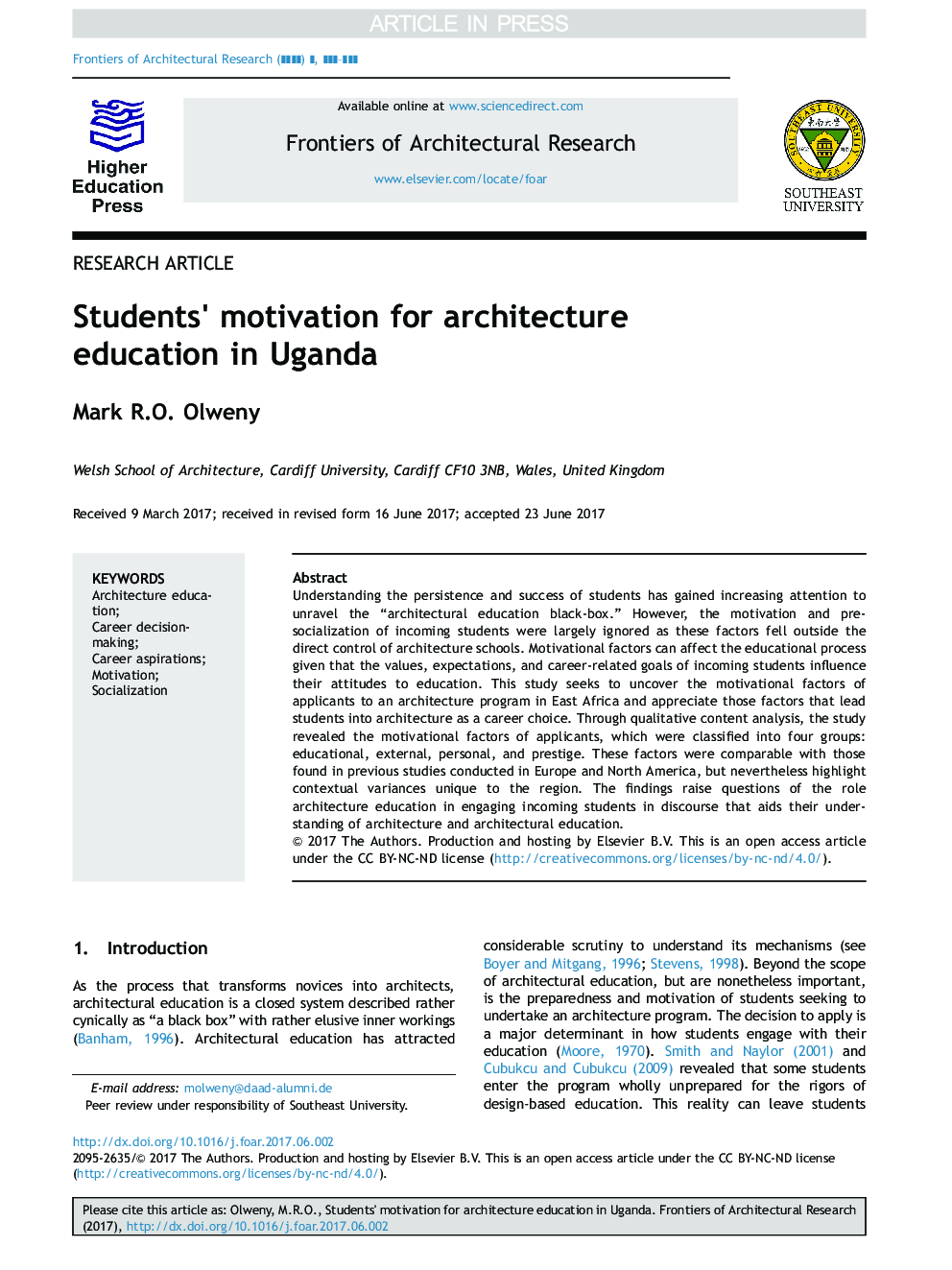| Article ID | Journal | Published Year | Pages | File Type |
|---|---|---|---|---|
| 6742471 | Frontiers of Architectural Research | 2017 | 10 Pages |
Abstract
Understanding the persistence and success of students has gained increasing attention to unravel the “architectural education black-box.” However, the motivation and pre-socialization of incoming students were largely ignored as these factors fell outside the direct control of architecture schools. Motivational factors can affect the educational process given that the values, expectations, and career-related goals of incoming students influence their attitudes to education. This study seeks to uncover the motivational factors of applicants to an architecture program in East Africa and appreciate those factors that lead students into architecture as a career choice. Through qualitative content analysis, the study revealed the motivational factors of applicants, which were classified into four groups: educational, external, personal, and prestige. These factors were comparable with those found in previous studies conducted in Europe and North America, but nevertheless highlight contextual variances unique to the region. The findings raise questions of the role architecture education in engaging incoming students in discourse that aids their understanding of architecture and architectural education.
Related Topics
Physical Sciences and Engineering
Energy
Renewable Energy, Sustainability and the Environment
Authors
Mark R.O. Olweny,
